Unusual edition today! Didn’t get much accomplished but took a master course in RPG design—in a sense—so this is in blog format below the jump. Lots to say!
I’ve heard of studies finding that social media may make people feel worse. Their hypotheses go that because people often share only interesting information, social media users constantly see their friends having exciting experiences, but don’t also see their friends’ everyday grind, tedium, and rigamarole. And so it goes that the grass is always greener, as everyone seems to be having a great time except you (whoever “you” may be).
In case these studies have any validity, I won’t leave out my ugly details—I’ll just be brief about them. No whining here! A few mundane things happened to me this week and took time:
- My car’s transmission went bad and needed replacement (but it’s a 2000 model I’ve been driving since 2002, so it certainly lasted)
- I celebrated a birthday of a family member
- A glitch in my property manager’s software resulted in my not getting my rental statement for 2013 and I had to get that sorted out
- gamingislove, the amazing developer of the ORK Framework for Unity that I’m using, released two new versions of it in one week—on Wednesday and Saturday—and I spent time getting acquainted with new things that I could do
Now that all the boredom’s done with, on to excitement!
None of those things halted my productivity. What did? An RPG named Bravely Default.
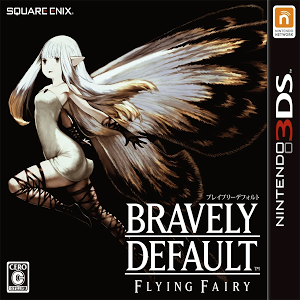
Congratulations, Bravely Default! You’re the new Final Fantasy.
With few exceptions, gaming usually doesn’t interrupt my game designing. Tales of Symphonia is my runner-up for favorite single-player RPG and I love it tons more than Bravely Default, but the PS3 re-release is still hitting my backlog in a few days. Legend of Zelda: A Link Between Worlds languished for two and a half months before I touched it and that’s a sequel to my favorite Zelda. So what happened here?
Of every RPG I’ve played, Bravely Default‘s gameplay comes closest to what I’ve envisioned for Dreamblazers.
Until this past week, I had no idea how I would explain Dreamblazers with a comparison because there weren’t any.
- “It’s like Street Fighter but turn-based and with a party instead of one fighter.”
- “Imagine Mother 3 battles except instead of a limited time window to start a rhythm chain, you have a window to select a new action.”
- “You know the RPG Maker battle system? It’s sort of like that, but instead of picking four turns up front you only get to pick successive turns as you hit enemies.”
- “If a Tales game was turn-based, this would be it.”
- “Think Pokémon triple battles except with more characters, damage cut by ~75%, and you pick multiple actions per turn, but only if you hit.”
- “Like Etrian Odyssey but with multiple turns fused together into an apropos Eldritch abomination so you can set up and act at the same time.”
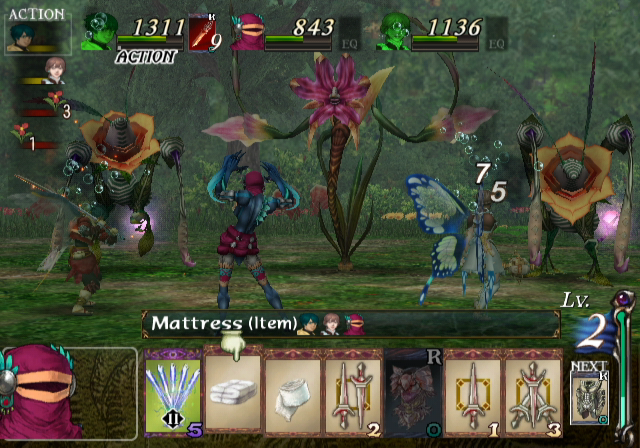
Best game pitch ever: “Take Baten Kaitos Origins, all eight of you in the world who have played it, and give it battle menus instead of cards.”
- “If every character in Final Fantasy VI was a Terra permanently in Morph mode, it would play a lot like this.”
- “The Dragon Quest battle style adopted the Star Ocean combo system and warned her new daughter that you are what you eat, but it backfired because then she ate a small cookie of Final Fantasy Active Time Battle.”
All terrible explanations! Yes, even that last one.
As hinted last week when I mentioned some status effects possibly not ending up in the final game, I certainly change direction as I implement depending on what seems intuitive or user-friendly, so some of these descriptions may not be accurate in the end. Damage might be more or less than in Pokémon, I might go with selecting multiple turns up front, I may go full ATB instead of turn-based, and so on. Lufia II‘s IP system could end up becoming the best comparison. Who knows? My only point is that I’ve had all of these thoughts and none seemed adequate.
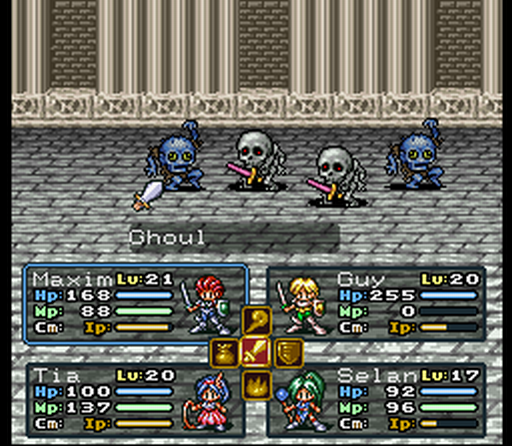
Fun fact: Lufia II: Rise of the Sinistrals did Limit Breaks a year before Final Fantasy VII.
At their core, no matter what aspects I’ve changed direction on, Dreamblazers battles revolve around what I’m calling the Followup system. You start off with light attacks, then build to progressively stronger attacks per turn as each move connects. Basic Moves flow into Special Moves and if you hit with two of those, they’ll flow into Super Moves.
In both what BD does right (most everything) and wrong (a few things), playing it has validated more of my positions on RPGs than not—many of them only theories that rarely see field tests. The Followup system is the most central, but by no means the only:
- My stance on evasion: people hate evasion when you get one hit per turn, when one miss can decide a half-hour battle, or especially both, but it won’t be an issue if characters have good survivability and attack multiple times per turn.
- On random encounters: they have great merit when surprise is key. (I’m leaning heavily toward using visible encounters myself, though.) This goes hand in hand with…
- On normal battles: if they don’t pose a threat then they shouldn’t exist, but if they do pose a threat then they shouldn’t be frequent.
- On bosses and enemies in general: battles against a team with similar skillsets and stats to your own are more interesting than battles against one giant monster with inflated HP and attack power.
- On status effects: see my stance on normal battles.
- On magic: either magic should be significantly stronger than physical attacks, magic should use the same MP as physical attacks (including 0 as an option), or magic users shouldn’t be fragile. If none of the above, then magic shouldn’t exist.
- On attack power: if anyone in a battle (whether friend or foe) can usually one-shot one of their enemies or especially all enemies, then instant death moves, most status effects, weaker healing spells, and sometimes even stat boosts become meaningless. In short, if battles are commonly spent with every character either dead or at 75%+ health, there’s no reason for the 0.01-74.99% to exist.
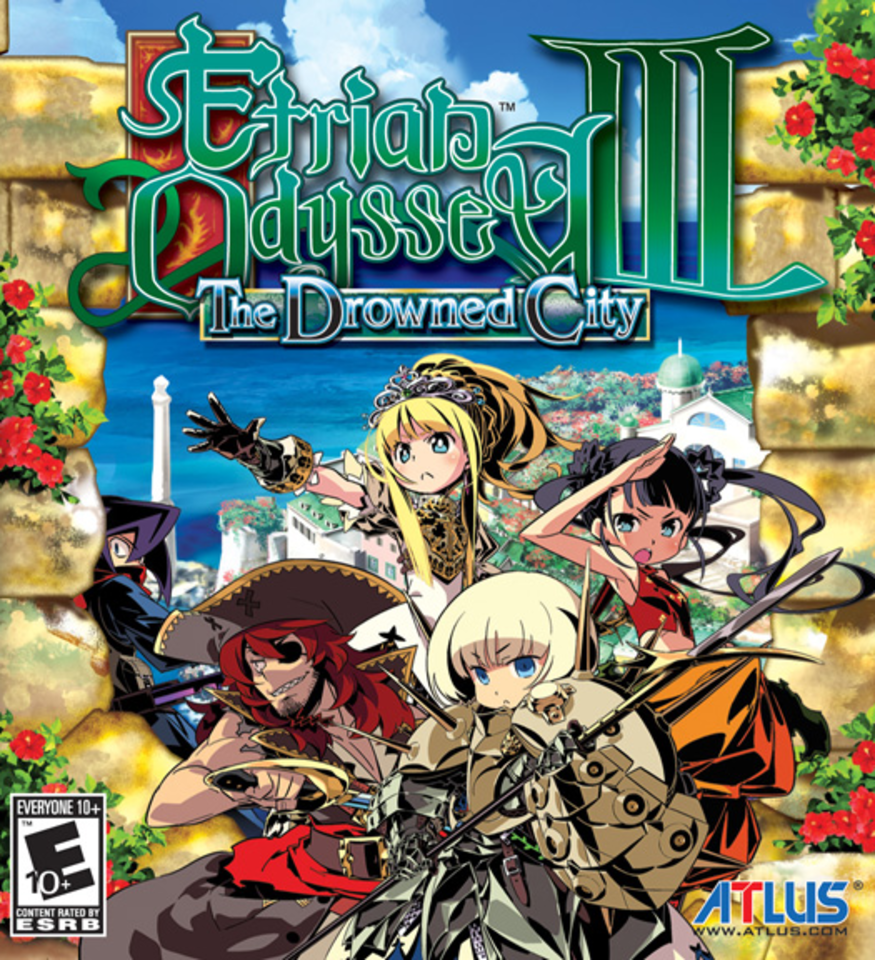
I love this series and all, but not until my favorite entry did it stop having optional bosses that would either one-shot the entire party or do no damage whatsoever depending on whether you had the appropriate skill.
Again, I’ll stress how crucial it is to see all of these elements bundled in one RPG. Usually I only see one or two done right, which of course is the impetus for every indie developer: to make the game you want to play because nobody else will.
I could go on, but most of my other thoughts wouldn’t be on the topic of battle—they’d cover overworlds, backtracking, skits, optional info dumps stored in books, and more.
I’ll just touch on one more, deeper, heartfelt thing.
Originally I meant to leave my job at the end of 2013, making December 31st my last day before I committed and went full indie. They asked me to stay an extra week, which I agreed to, and then an extra month. I still agreed, but cut it off there. January 31st was my last day before becoming a legitimate independent developer.
On February 1st, My Little Pony: Friendship is Magic aired the episode “Pinkie Pride”—now my favorite episode, guest starring Weird Al Yankovic and centering around my favorite character, Pinkie Pie. Although Pinkie has nothing in common with me except a love of pink, she embodies everything I love about characters: weirdos, genki girls, friendly people, and incredibly brokenly overpowered female characters. Of all the aspects I loved in the show, though, what stuck with me most were words sang by Weird Al in his character’s backstory:
—
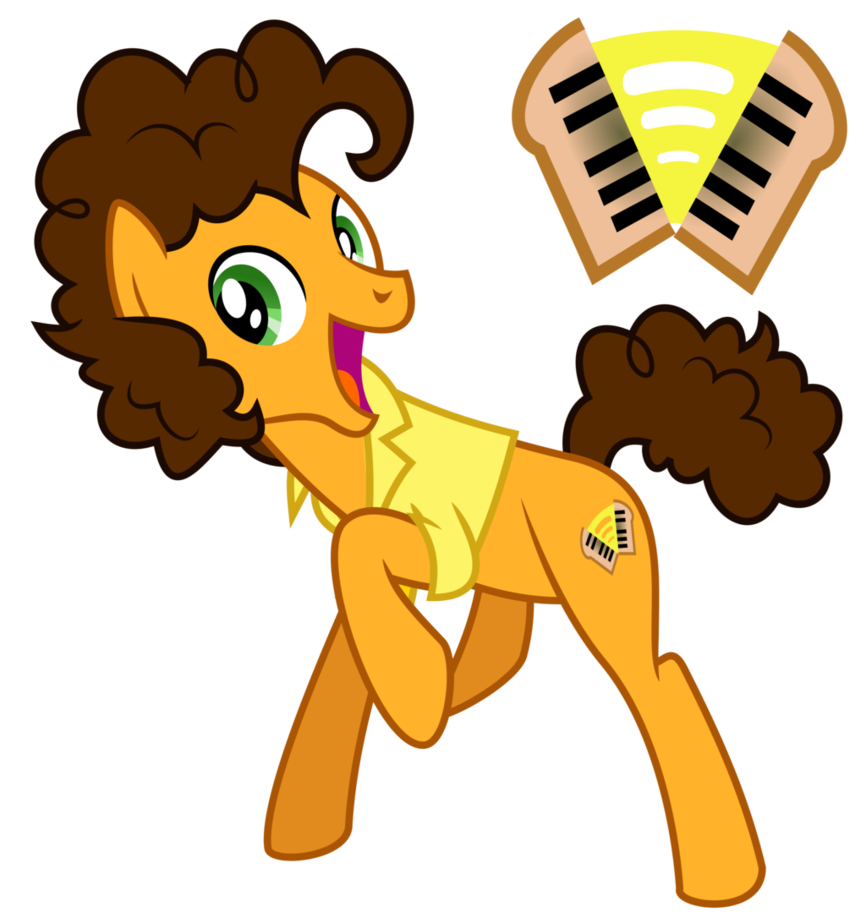
I vowed that day to change my life
The past I did set free
—
I’m with ya, buddy.
Then, on February 7th, out came Bravely Default. I put off playing it for a week and a half, but I shouldn’t have. There it was, everything laid out on the table in a single RPG package confirming that, yeah, I knew what I was doing.
Although I’ve trusted in Jesus Christ as my lord and savior (though I often struggle to understand that first part), I’m also a believer in coincidence. I wouldn’t say it’s a sign from God that within a week of leaving my job, “Pinkie Pride” and Bravely Default both arrived. I wouldn’t say they’re divine indicators that I’d chosen correctly. I’ll say this, though: they’re so resonant and beautiful that they might as well have been.

Pingback: Dreamblazers Devlog: Week of May 5, 2014 | Project Dreamblazers
Pingback: Dreamblazers Devlog: Week of June 2, 2014 | Project Dreamblazers
Pingback: Dreamblazers Devlog: Week of October 6, 2014 (Birthday Edition) | Project Dreamblazers